A Visit to the Jungle
The Most Extraordinary Supermarket in the World
When I visited Ohio last month, I thought that the Ark Encounter and Creation Museum would be the only fascinating trips that I would make. But I ended up visiting a supermarket that was almost equally interesting.
I guess it’s not really accurate to call “Jungle Jim’s International Market” a supermarket. It’s surely one of the largest food stores in the world - not only in size, but especially in the number and diversity of products that it sells, with nearly two hundred thousand food products from all over the world. And the monorail and giant animatronic characters and random bizarre items all over the store add to its extraordinary nature.
The aisles in this gargantuan complex are mostly arranged according to country. And they really show how food is an inseparable part of national identity. The British aisles even had Marmite!
The fruits and vegetables section was fascinating. In Genesis 1:21, God says that He has given man every vegetable and every fruit to eat. But the number of species of fruits and vegetables that we actually eat in the Western world is only a tiny fraction of the edible species that exist. However, in other countries, a wider variety of fruits and vegetables and other plant products are eaten, and many of these were on display:
My particular interest was with regard to exotic animal foods. None were kosher, but they illustrate how the laws of kashrut are particularly striking when contrasted with a backdrop of cultures that are far more different from Judaism than is modern American society. In my post “What is the Reason for Kashrut?” I discussed that the reasons for kashrut are multilayered, but they include the concept of cultural distinction. And so it was particularly interesting to see which species are eaten in other cultures.
Some did not come as a complete surprise:
And from my travels around the world, I was not surprised to see this:
But I did not realize that emu eggs are a thing:
Speaking of eggs, the Chinese eat duck eggs, but prepared in a very unusual way. They are preserved in a mixture of clay, ash, salt, and quicklime for several weeks to several months. This results in their acquiring not only a very strong taste, but also a remarkable shade of green:
Duck eggs are normally kosher, but it’s not clear what these eggs may have absorbed in the pickling process. There was also another type of egg for sale which is normally kosher, but in this case was not. While quail and their eggs are kosher, some of the quail eggs on sale at Jungle Jim were balut eggs. These are a southern Asian delicacy involving fertilized eggs that are incubated to produce an embryonic chick, and are thus not kosher.
Jungle Jim also stocked a very large variety of insect foods. The kosher type of locust that we sell at the Biblical Museum of Natural History was lacking, but they had various candies with ants, mealworms, crickets, scorpions, and suchlike. There was also a basket with the following astonishing variety of insects and invertebrates:
In case you can’t make out the labels, there is Earthworm Jerky, Diving Beetles, Bamboo Worms, Weaver Ants, Mixed Bugs, and Tarantula!
But you don’t have to be from exotic Asia to eat unusual foods. Some of the strangest food items were from the US of A itself:
Meanwhile, in the seafood section, the monkfish looked like a character from The Far Side:
Interestingly, despite the aisles from all kinds of countries, there was no “Israel” aisle. Instead, there was a Kosher aisle. Here’s a small part of it:
But I would advise any Jewish shoppers at Jungle Jim to exercise extreme caution. Underneath the Manischewitz kosher salt and chanukah candles, under the kosher Bamba, above the Osem kosher couscous, alongside the kosher sardines and canned kosher tuna, are smoked very-much-not-kosher mussels and canned very-much-not-kosher squid!
Meanwhile, we are planning another one of legendary exotic kosher events at the Biblical Museum of Natural History either right before or right after Sukkot. If you’re interested in learning more, please email advancement@biblicalnaturalhistory.org.
(On another note - if you are making a shipment to Israel and have space for a small museum item, please be in touch!)




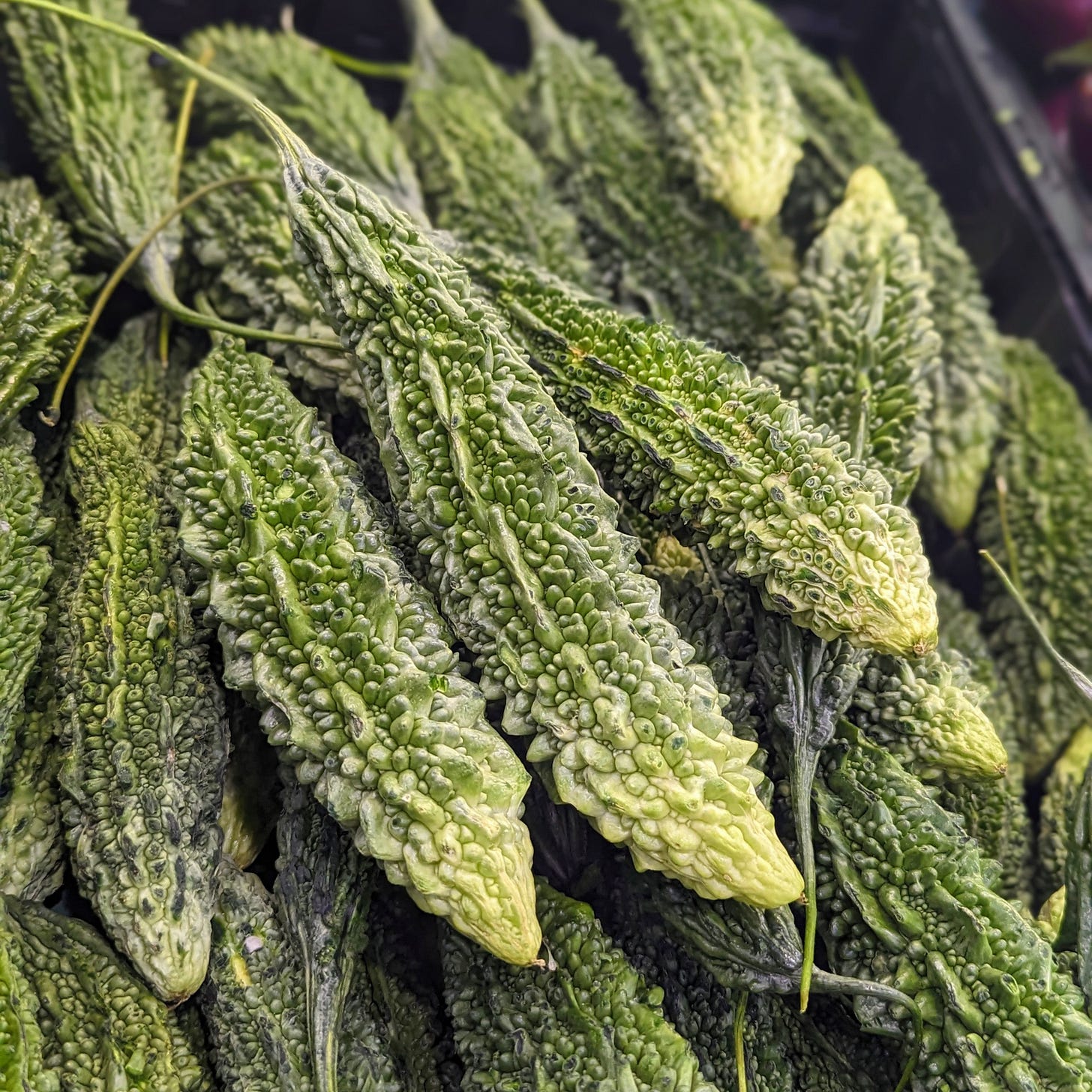

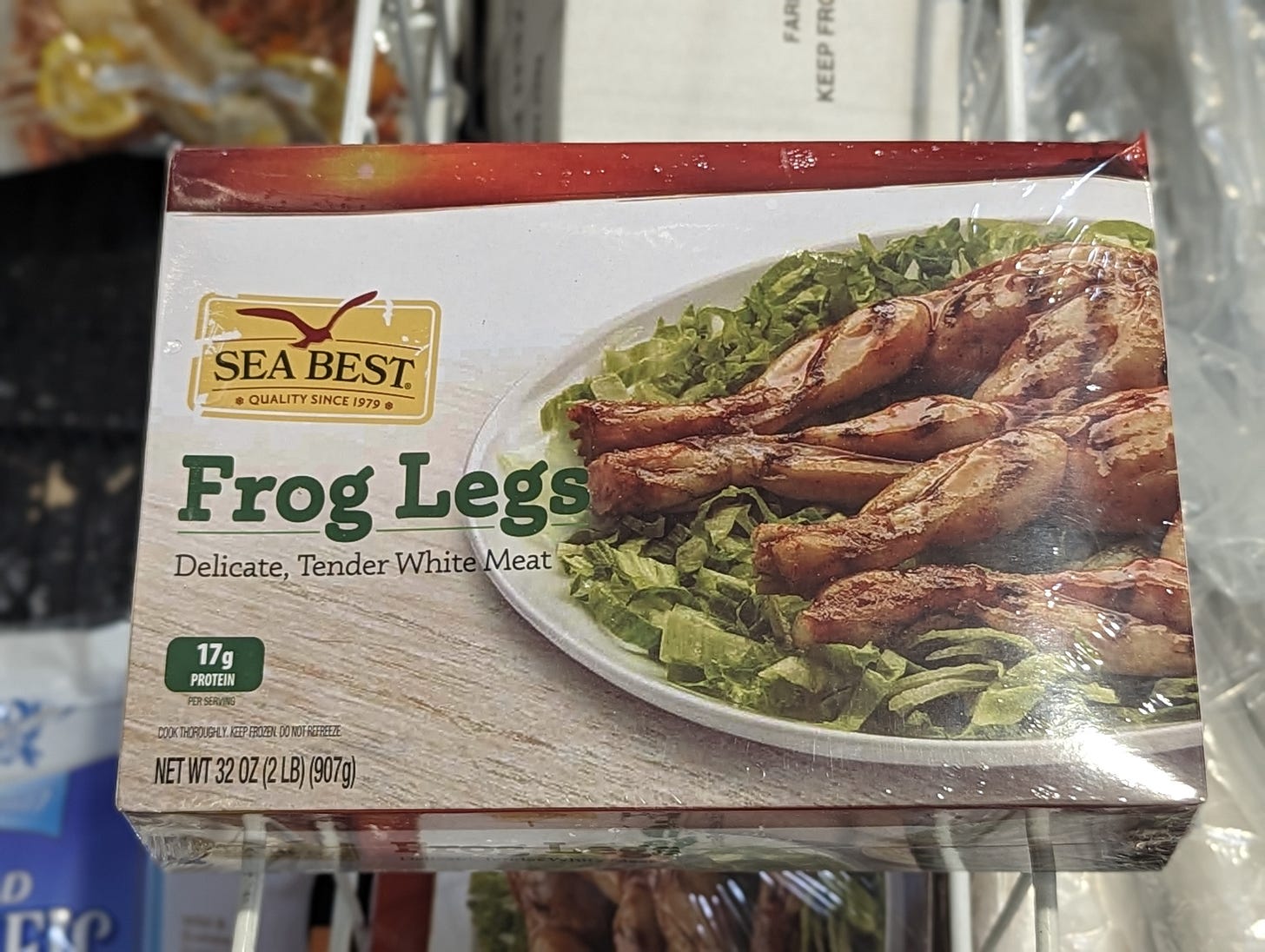
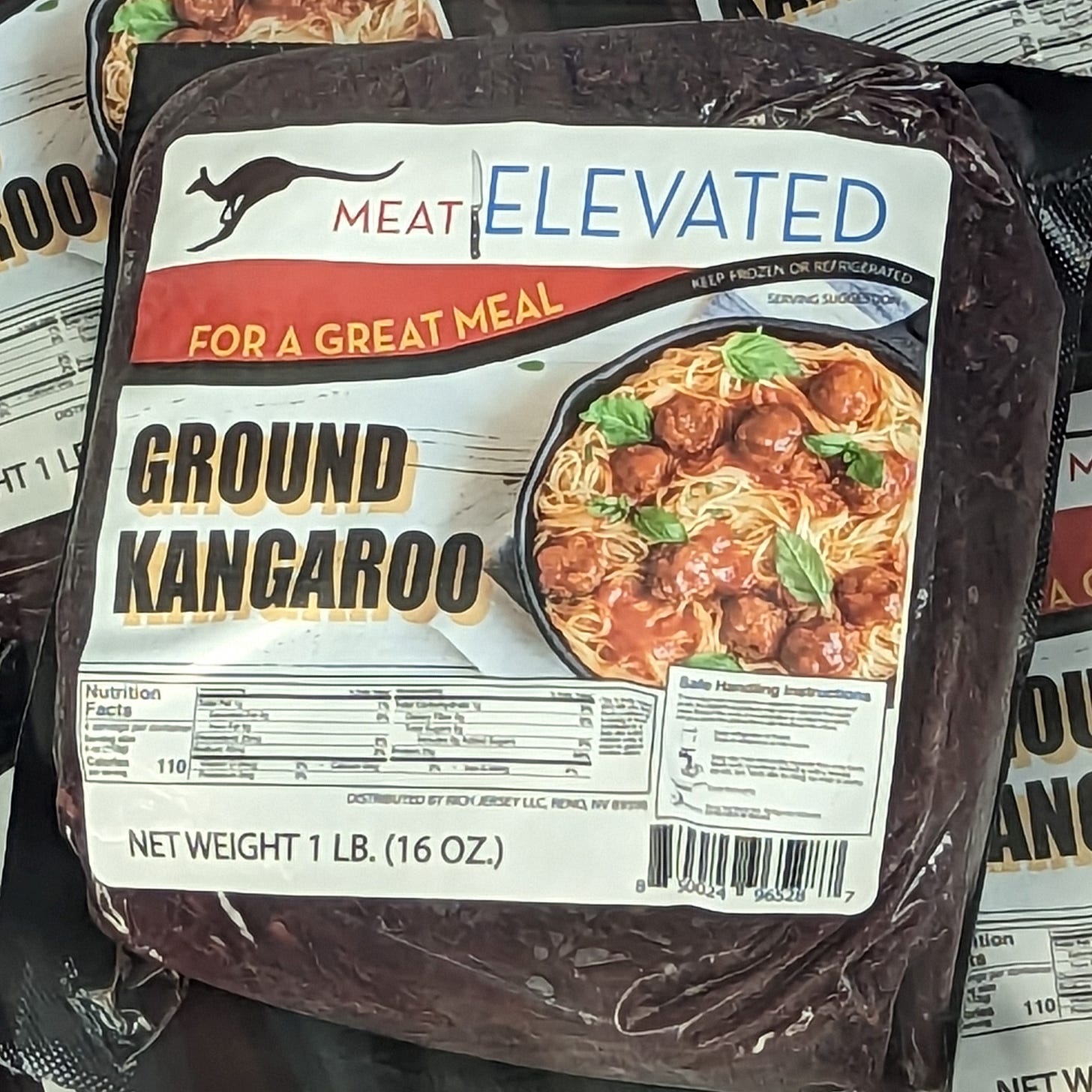
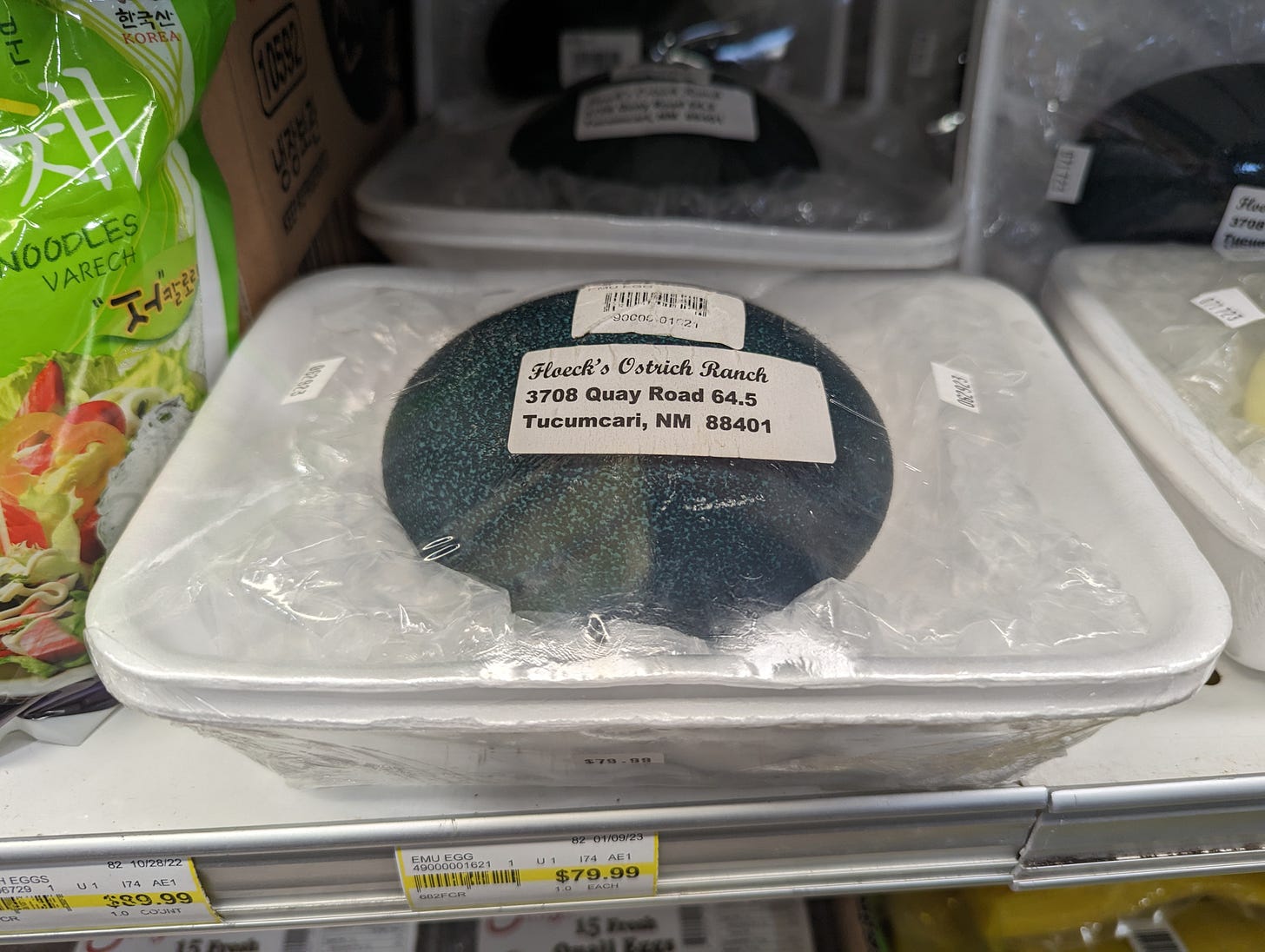

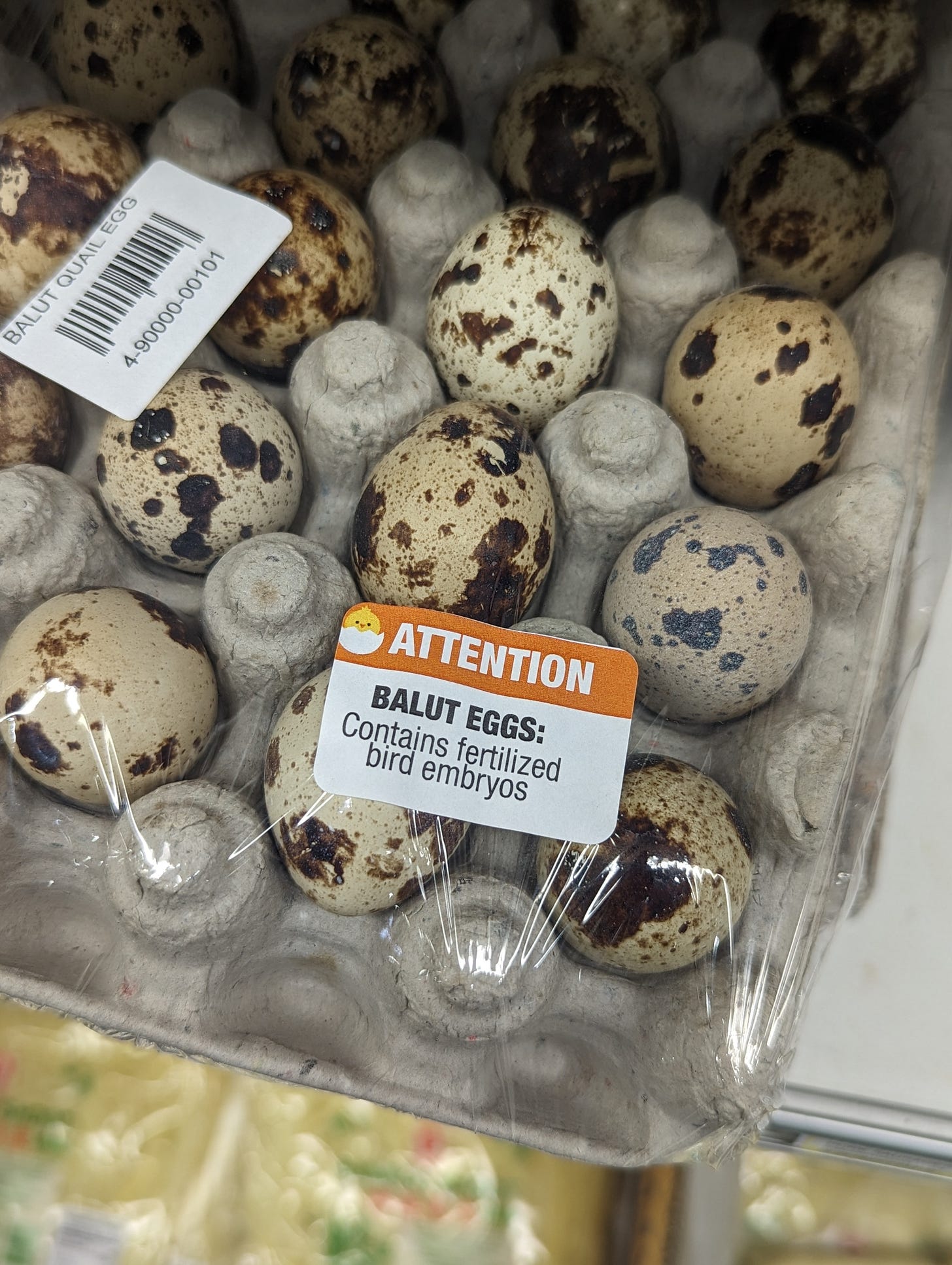


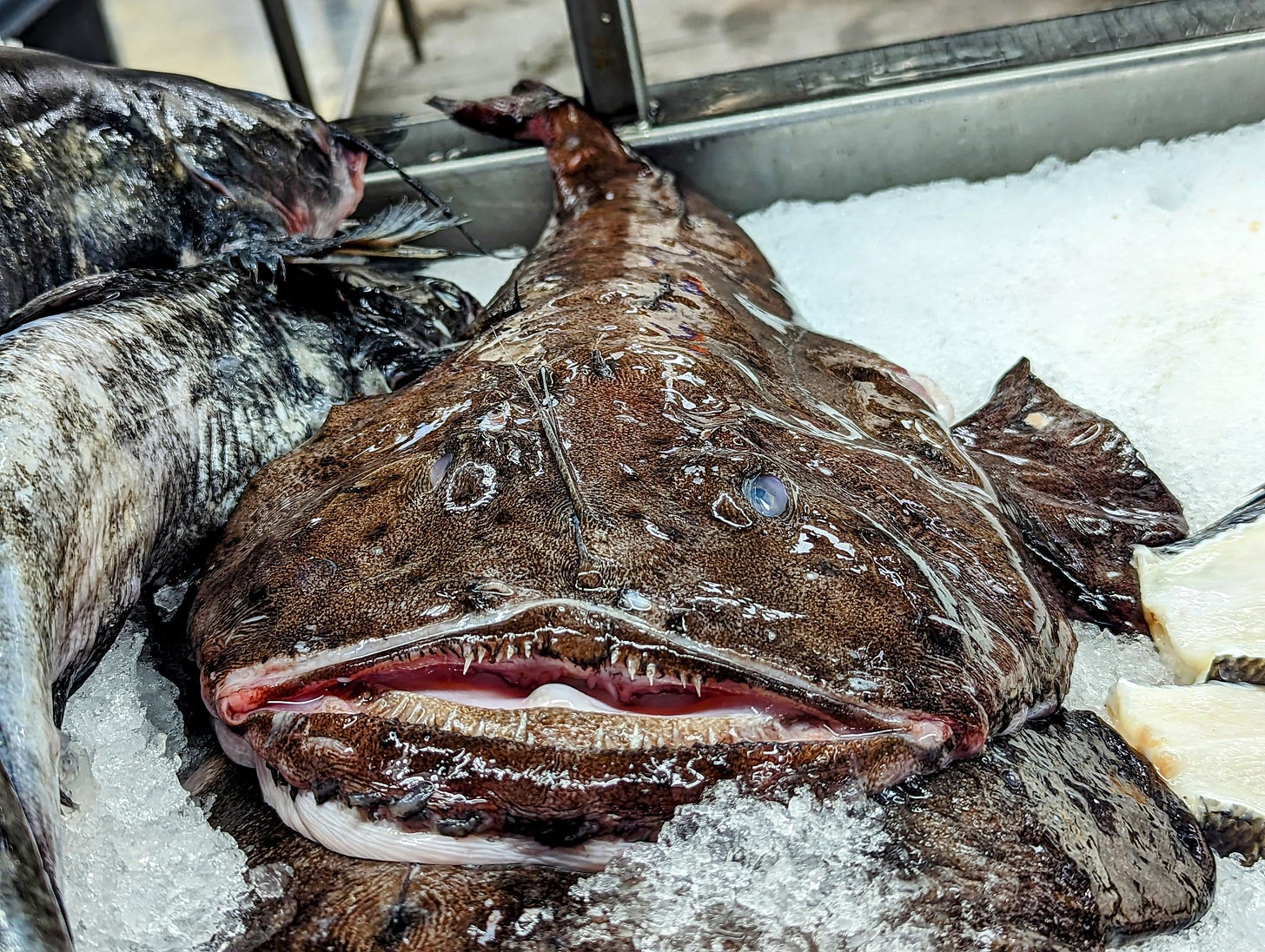

The sociology of food is an academic subdiscipline all on its own. Different societies eat at different times, structure meals differently, and avoid different foods. Kashrut is just one of many sociological food avoidance systems. For example, Americans will not eat horse, though it is massively popular in central Asia. Southeast Asians eat dog and even have specific breeds for meat production but that would be deeply frowned upon in Europe and the US. Guinea pigs, insects, and frogs are all foods that are eaten in some places but not in others.
"The British aisles even had Marmite!"
So do the British Isles.